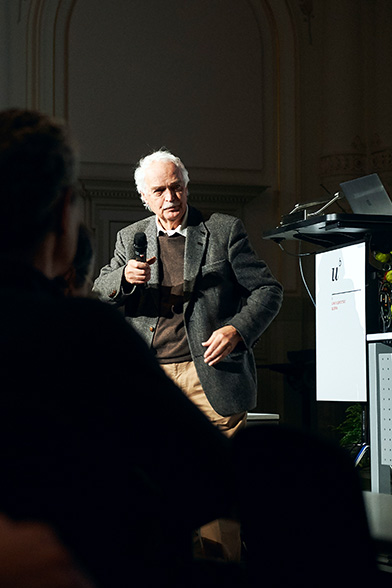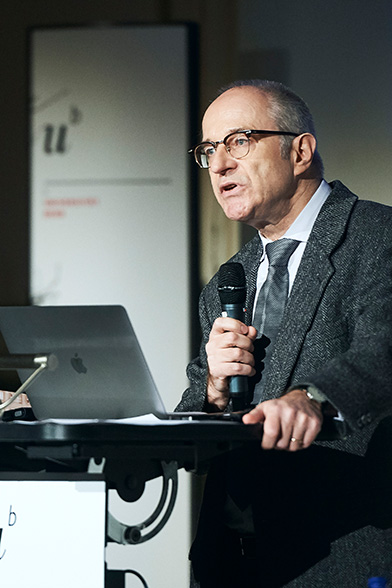Einstein Lectures: What Truth is Not
On 20 November, the renowned British philosopher Simon Blackburn gave the first of the three Einstein Lectures 2017 devoted to the subject of truth. In this opening lecture, he revealed to the audience the problems that can arise when one would like to explain truth as a particular form of correspondence with facts.
Simon Blackburn is an important and influential philosopher – both within and outside the world of academia. Among other things, he has been the Professor of Philosophy at the University of Cambridge and editor of the prestigious philosophical journal "Mind", and he contributes a great deal to the popularisation of philosophy with books and texts that have been translated into 18 languages. He is also an exceedingly polite guest: right at the start of his lecture, Blackburn apologised that he would have to hold it in English – his German, he said, was not good enough for him to lecture in it. The language that he then used proved to be a fine gift for his hosts. He knows how to present complicated issues in simple language, without sacrificing intellectual depth in doing so.
A Tribute to Einstein
In the first part of the event, Blackburn reconstructed positions held by Einstein regarding the question of whether the non-observable objects postulated by scientific theories actually exist. He sketched the portrait of a young Einstein who was on the side of the anti-metaphysicians. According to the anti-metaphysicians, the question of existence is not a relevant question for the sciences. This question, they say, is a metaphysical question, a question that goes beyond physics. Blackburn quoted the well-known chemist August Kekulé as a representative of this position: "The question of whether atoms exist or not is of little significance from the standpoint of the chemist. […] In chemistry we have merely to decide whether the assumption of atoms is a hypothesis suitable for the explanation of chemical phenomena."
Liberation from such metaphysical ballast can facilitate the further development of scientific theories. According to Blackburn, Einstein's formulation of the theory of relativity was partly made possible by such convictions. Blackburn is convinced that "Einstein would otherwise have been locked into a very much more conservative view of space and time."
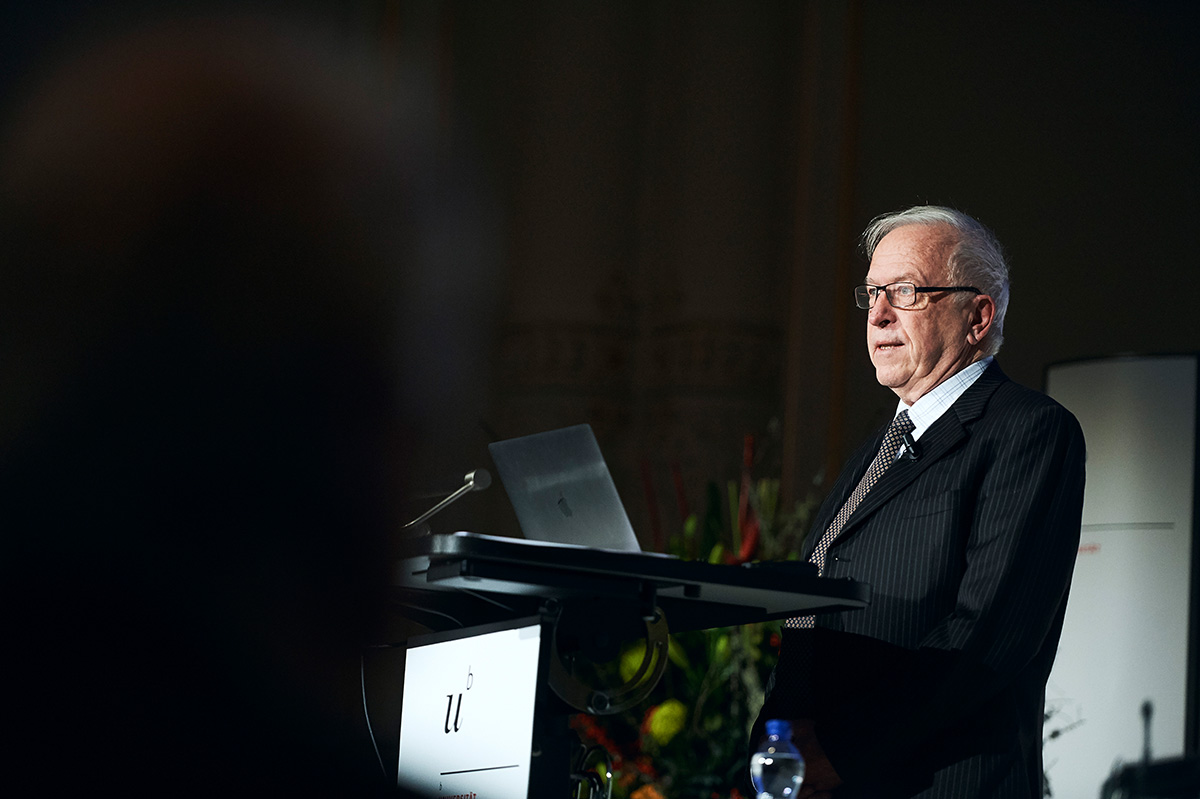
Is truth so obvious?
In the second part, Blackburn took a critical look at a theory of truth that appears very plausible, at least at first glance: the correspondence theory. The core statement of this theory is that a sentence is true when it corresponds with the facts. This statement seems so true that it could be taken as a platitude. One was therefore all the more taken aback when Blackburn began quoting philosophers raging against this theory. Richard Rorty got some laughs with "The idea that truth is correspondence should be extirpated rather than explicated". According to these people, the problem is not that the correspondence theory of truth is false: nobody doubts that true sentences correspond with the facts. The problem, in their view, is more that 'being true' and 'corresponding with the facts' are synonyms and that the theory, accordingly, does not have much explanatory power, or that when it is taken literally it leads to implausible conclusions.
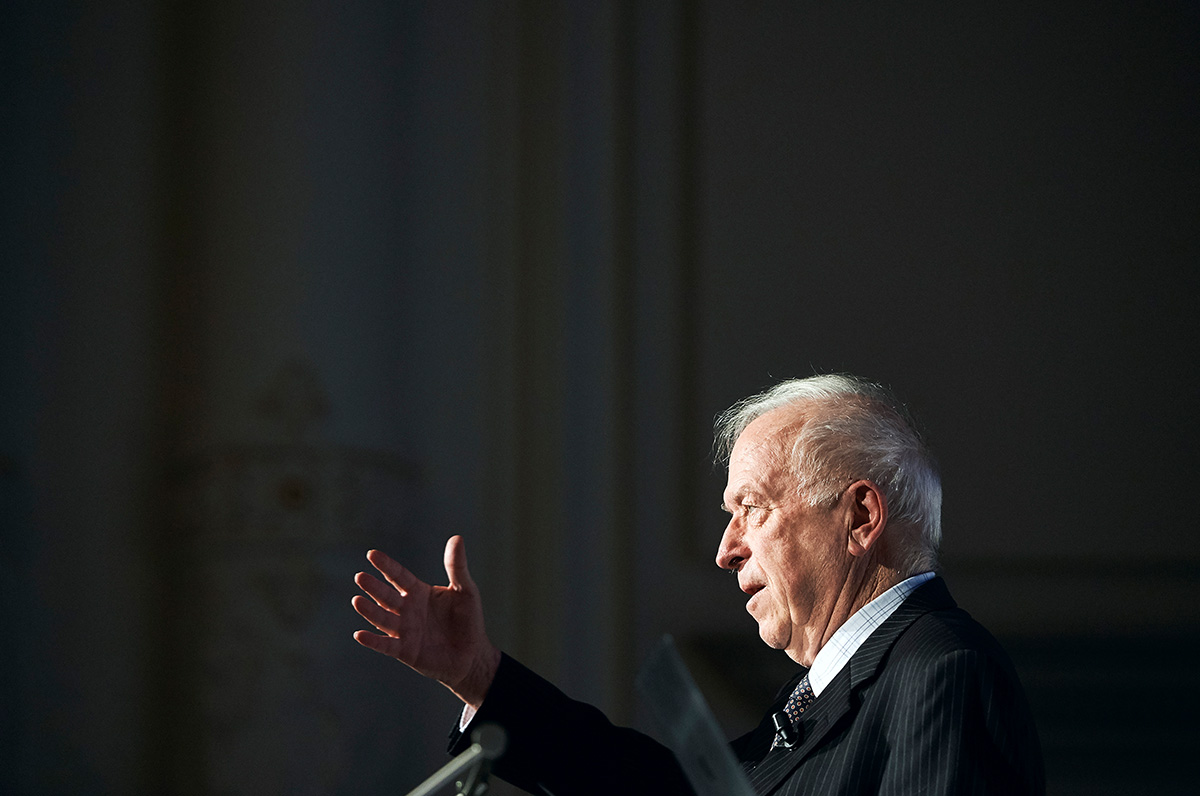
Why some platitudes do not make good theories
Blackburn then presented two arguments against the correspondence theory of truth. Both work on the assumption that one accepts the theory literally. In the first argument, which dates back to Wittgenstein, one assumes that a sentence is true. According to the theory, there must then be a fact in a genuine relation of correspondence with the sentence. If facts are objects at all, then they are very peculiar ones. Blackburn explained: “One could, for example, in principle, move the Eiffel Tower from Paris to Berlin.” But one cannot move the fact that the Eiffel Tower is in Paris, because facts are not located in space and time. It is therefore difficult, he said, to imagine how such facts can bear relation to anything. The theory thus seems to have an implausible consequence here.
In the second argument, which traces back to Frege, one looks at the process of gaining knowledge. Blackburn’s example was the question of whether his suit was made in England. He then invited the audience to imagine two groups, each with a slightly different task. The first group is to find out whether the suit was made in England. The second group is to find out whether it is true that the suit was made in England. According to the correspondence theory of truth, these two groups would have to be occupied with completely different activities. Whereas the first group would examine the suit, the second group would be occupied with checking whether there are any facts and relations which the sentence bears to the facts. Intuitively, however, one would think that the two groups should do the same.
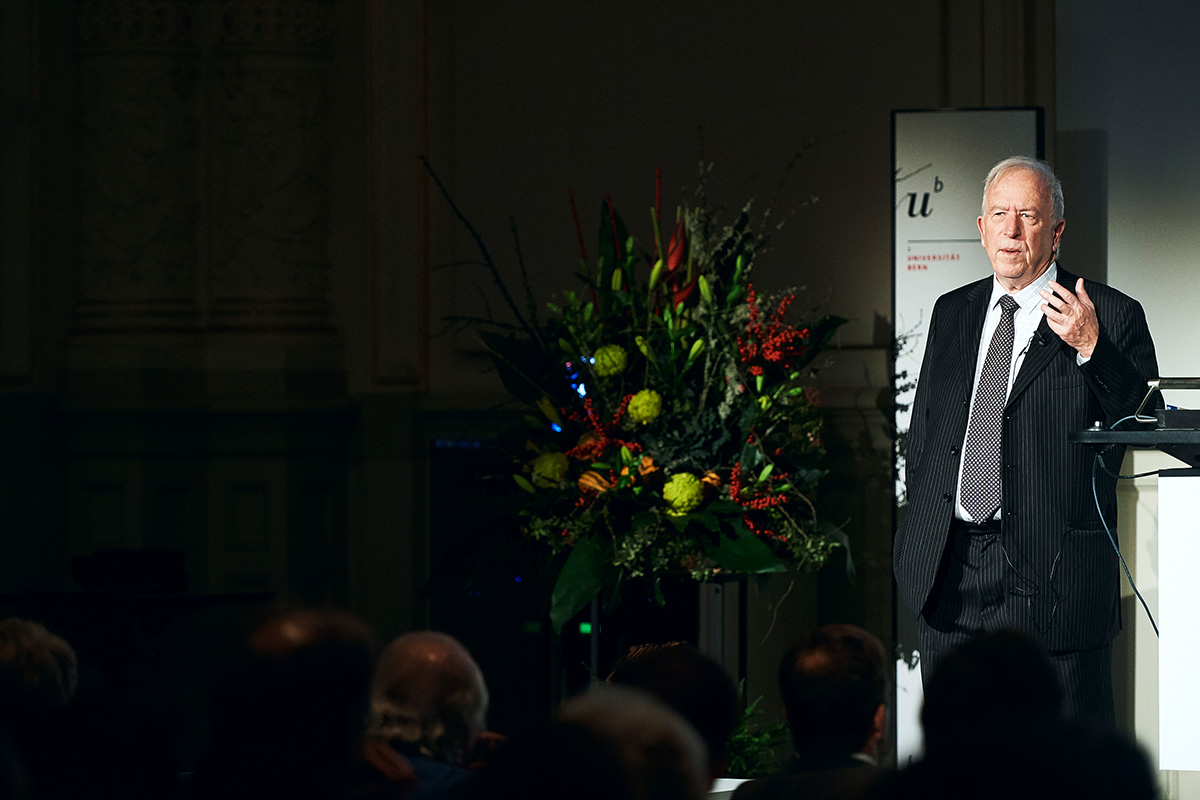
When Blackburn was asked, at the end of the lecture, whether he believed he had said much that was true that evening, Blackburn replied: "I believe I have said some true things about Einstein, about other philosophers, and also about truth itself." He added straight away, however, that he had not gone too far out on a limb that evening. So one can be curious about the two events to follow, in which Simon Blackburn will perhaps venture "further out".
ABOUT THE PERSON
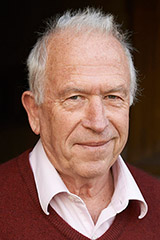
Simon Blackburn is one of the most famous philosophers of our time, whose numerous works fascinate a wide audience and have been translated into 18 languages. As the "Bertrand Russell Professor of Philosophy" of the University of Cambridge, the 73-year-old held, until recently, one of the most renowned chairs of philosophy: that of Ludwig Wittgenstein. He was the editor of the journal Mind from 1984 to 1990.
EINSTEIN LECTURES 2017
In memory of the work of Albert Einstein, the annual Einstein Lectures of the University of Bern and the Albert Einstein Society are alternately dedicated to topics from physics, astronomy, mathematics, and philosophy. For the current series of lectures, the British philosopher Simon Blackburn has been invited.
Other Lectures:
Truth and the pragmatist challenge
Tuesday, 21.11.2017, 17:15
Truth in feeling
Wednesday, 22.11.2017, 19:30
Main Building of the University of Bern, Auditorium, Hochschulstrasse 4, Bern. The lectures are open to the public and entry is free of charge. The lectures are held in English.
Further Links:
Einstein Lectures
Albert-Einstein-Gesellschaft
Institut für Philosophie
ABOUT THE AUTHOR
Joannes Bernard Campell (*1985) is currently in his fourth Master’s semester studying Philosophy at the University of Bern.
